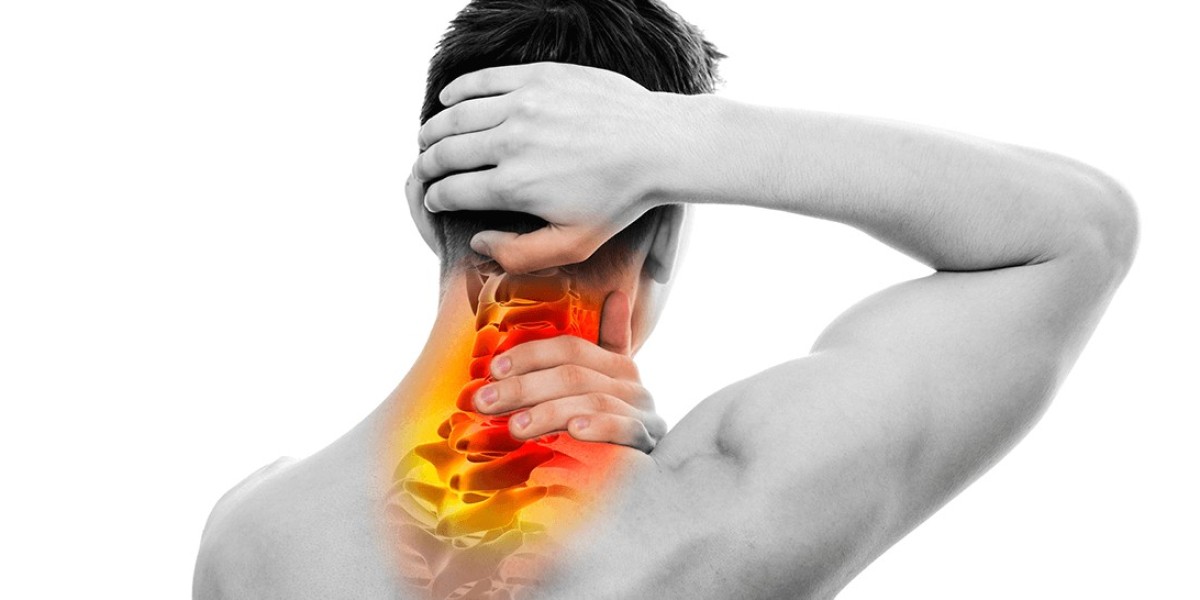Stress is an unavoidable part of modern life. From workplace deadlines to personal challenges, everyone experiences it in some form. While occasional stress may not cause major harm, chronic stress can take a toll on the body—especially the neck. Many people notice stiffness, tension, or even severe pain in the cervical region during stressful times. The good news is that effective neck pain treatment not only targets physical discomfort but also addresses the root cause—stress itself.
How Stress Affects the Neck
When the body perceives stress, it activates the "fight or flight" response. This involves:
Release of stress hormones like cortisol and adrenaline.
Increased muscle tension to prepare for action.
Shallow breathing, which limits oxygen supply to muscles.
For the neck and shoulders, this constant tension means:
Muscles tighten and become fatigued.
Poor posture worsens strain (e.g., hunching forward while stressed).
Reduced blood circulation leads to stiffness and pain.
Over time, unresolved stress leads to chronic discomfort, headaches, and the need for targeted neck pain treatment.
Common Symptoms of Stress-Induced Neck Pain
Tightness and stiffness in the neck and shoulders.
Headaches or migraines triggered by muscle tension.
Pain that worsens during stressful events.
Difficulty turning the head or maintaining posture.
Radiating discomfort into the back or arms.
Effective Neck Pain Treatment for Stress-Related Discomfort
1. Stress Management Techniques
Since stress is the root cause, treatment must address both body and mind:
Deep breathing exercises: Promotes relaxation and reduces tension.
Meditation and mindfulness: Helps calm the mind and release muscle tightness.
Yoga and tai chi: Combine gentle movements with stress reduction.
2. Physical Therapy
A physical therapist can teach exercises that:
Release muscle tension.
Improve posture.
Build resilience in the neck and shoulder region.
3. Massage Therapy
Targeted massage loosens tight muscles, boosts circulation, and induces relaxation, directly combating stress-related stiffness.
4. Chiropractic Care
Spinal adjustments may help correct misalignments caused by chronic muscle tension, restoring balance and reducing pain.
5. Heat and Cold Therapy
Heat packs relax tense muscles after a stressful day.
Cold therapy reduces inflammation when pain flares up.
6. Alternative Therapies
Acupuncture: Stimulates points that relieve both stress and physical pain.
Aromatherapy: Essential oils like lavender promote relaxation.
7. Lifestyle Modifications
Ergonomic workspace: Prevents stress-induced poor posture.
Regular exercise: Reduces cortisol levels and strengthens supportive muscles.
Balanced diet: Supports overall health and stress management.
The Role of Mental Health in Neck Pain Relief
Since stress and mental health are intertwined, psychological support can enhance physical recovery. Options include:
Counseling or therapy: To manage chronic stress and anxiety.
Cognitive Behavioral Therapy (CBT): Helps change thought patterns that trigger tension.
Support groups: Sharing experiences can reduce stress and promote healing.
Preventive Strategies for Stress-Related Neck Pain
Practice daily relaxation techniques.
Take frequent breaks from screens and work.
Stretch neck and shoulder muscles regularly.
Prioritize sleep for body repair and stress control.
Set boundaries to reduce overwhelming commitments.
Long-Term Benefits of Combining Stress Relief with Neck Pain Treatment
Reduced recurrence of pain episodes.
Improved mental clarity and focus.
Better posture and spinal health.
Enhanced quality of sleep and relaxation.
Greater resilience to future stressors.
Conclusion
Stress may be a mental challenge, but it often manifests physically—particularly in the neck and shoulders. Understanding this connection is the first step toward effective care. A combination of stress management, physical therapy, massage, chiropractic care, and lifestyle changes creates a holistic approach to neck pain treatment. By treating both mind and body, individuals can achieve lasting relief, improved well-being, and a healthier outlook on life.
FAQs
Q1: Why does stress cause neck pain?
A: Stress increases muscle tension and reduces circulation, especially in the neck and shoulders, leading to stiffness and pain.
Q2: Can meditation really help with neck pain?
A: Yes, meditation reduces stress hormones and relaxes muscles, making it an effective complementary treatment.
Q3: How often should massage be used for stress-related neck pain?
A: Once a week or bi-weekly sessions are beneficial, but frequency depends on the severity of pain.
Q4: Is medication necessary for stress-induced neck pain?
A: Mild pain can often be managed with lifestyle changes and relaxation techniques, but medication may be used in severe cases.
Q5: Can stress-related neck pain become chronic?
A: Yes, if left untreated, stress can lead to recurring or chronic neck pain requiring long-term management.








